wikiHow is a “wiki,” similar to Wikipedia, which means that many of our articles are co-written by multiple authors. To create this article, 13 people, some anonymous, worked to edit and improve it over time.
wikiHow marks an article as reader-approved once it receives enough positive feedback. In this case, 90% of readers who voted found the article helpful, earning it our reader-approved status.
This article has been viewed 58,070 times.
Learn more...
When you first get your brand new dentures, the false teeth sparkle brightly every time you smile. However, as time progresses, the shade of your false teeth goes from bright white to pale white or even to yellow. Luckily, there are many methods of keeping your false teeth pearly white!
Steps
Brushing Your False Teeth
-
1Brush your false teeth at least once a day. Just like natural teeth, you should brush your false teeth at least once daily. Ideally, you should brush after every meal, although this can be difficult for those who work away from home all day. So at the very least, you should brush your false teeth at night before going to bed.[1]
-
2Use a soft toothbrush. Use a soft toothbrush, or a toothbrush that is available specifically for false teeth. There are many brands (like Oral-B) that have launched toothbrushes designed exclusively for false teeth.[2]
- If you choose hard toothbrushes, the false teeth may get numerous scratches which will cause the loss of the original glaze.
Advertisement -
3Use mild toothpaste that does not have any abrasives in it, or use a toothpaste that contains an extremely low percentage of abrasives. This is important, as strong chemical abrasives can scour the false teeth.[3]
- You can also brush your teeth without toothpaste because the main purpose of brushing is to remove the biofilm covering the teeth.
- Buy a denture toothpaste that has a Radioactive Dentin Abrasion (RDA) value between 0-70. The RDA is an index used by the American Dental Association (ADA) to determine the level of abrasion of a toothpaste. RDA values higher than 70 indicate that a toothpaste is abrasive, and is therefore dangerous to your false teeth.
-
4Use dishwashing soap if you can’t find any mild toothpaste. Dishwashing soap is the most ideal cleanser because it does not contain abrasives that can damage false teeth.[4] It has bactericidal ingredients like Tetrasodium EDTA and triclosan that kill and inhibit bacterial growth.
-
5Brush your false teeth with the proper techniques. After you have chosen what denture paste to use, rinse your false teeth in running water. Apply a strip of denture paste on the bristles of your toothbrush.
- Hold the brush such that the bristles face the gum part of your false teeth.
- Do small, circular, vibratory brushing strokes to remove food particles. This is the best method to reach food particles caught in between false teeth.
- Do a sweeping motion from the gum part towards the biting surfaces of the false teeth to flush out all the food debris.
- Rinse your false teeth in running water to remove excess denture paste and food particles.
-
6Clean your false teeth every after meal. Food debris or plaque can cause black/green/grey staining of false teeth.
- When proper oral hygiene is not observed, this plaque will harden and absorb colored liquids like coffee, tea or soda.
- Brushing your false teeth regularly removes debris and prevents plaque build-up.
Using Cleansers and Other Means to Keep Your Dentures Clean
-
1Soak your false teeth in a container with denture cleanser. Do this for 15 to 20 minutes before going to bed. Denture cleansers prevent plaque buildup that causes your false teeth to discolor. Soaking them once a day before bedtime keeps them nice and white. The following denture cleansers are the ones that are proven safe by the ADA:[5]
- Efferdent® Denture Cleanser: Drop 1 tablet in warm water and wait for the solution to get fizzy. Soak false teeth for 15 minutes then rinse well under running water.
- Fresh 'N Brite® Denture Cleansing Paste: Remove false teeth and rinse before brushing. Apply denture paste on the toothbrush and brush all the surfaces of false teeth for 2 minutes. Rinse thoroughly with running water. Do this twice a day.
-
2Use alkaline hypochlorite to keep false teeth white and free of stains. Alkaline hypochlorite is effective in removing stains and inhibiting the growth of bacteria in false teeth, because once it undergoes the oxidation process it breaks the bond of a colored molecule and turns it into a single bond colorless molecule.
- Home preparation: In a covered container, dissolve 10 mL (0.34 oz) of regular bleach in 200 mL (6.8 oz) water. Soak false teeth in this solution for 5 minutes. Rinse thoroughly in running water.
- Over-the-counter solution: In a covered container, dissolve 20 mL (0.68 oz) of Dentural® Denture Cleaner in 200 mL (6.8 oz) water. Soak false teeth in it for 10 minutes. Rinse thoroughly in running water.
-
3Use a vinegar and water mixture to keep your dentures clean. To loosen up the tartar which adheres to the false teeth surface strongly and do not go off by brushing, use a solution of equal parts vinegar and water.
- This is a proven home remedy to remove tartar, a substance that plays a major role in diminishing the whiteness of false teeth.
- Take half a glass of white vinegar and add water to dilute it till the glass becomes full. Now soak the dentures in it for around half an hour.
- Take out your dentures after half an hour and rinse thoroughly under running water. The loosened tartar will be washed away.
-
4Use the microwave to clean your dentures. If your dentures do not have any metal attachments, you can microwave the dentures for about 2 minutes.[6]
- Put the dentures in a cleaning solution and heat them in the microwave for 2 minutes.
- After the 2 minutes, the bacteria will be destroyed and the false teeth will be free from dirt and deposits.
-
5Remember to remove your dentures at night. Do not sleep with your dentures in your mouth. Sleep is a time of high bacterial activity, as saliva production is low and the flushing action of saliva is diminished. Besides, spending 6 to 8 hours without your false teeth in is good for the health of your gums.[7]
Avoiding Certain Substances
-
1Understand why false teeth become stained. False teeth are made from plastic (acrylic) that gets porous as time goes by. It can pick up stains from the liquids/food we eat and drink and this causes unsightly discoloration of false teeth.[8]
- The degree of staining differs from one person to another because no diet is the same.
- In general, try to consume foods and liquids that are lighter in color, as they are less likely to cause any discoloration.
-
2Avoid tobacco and cigarettes. When you inhale cigarette smoke, you are coating your teeth with tar and nicotine. Nicotine is the ingredient in cigarettes that is responsible for the yellow-brown stains on your teeth.[9]
- Naturally, nicotine is colorless, but once it comes into contact with oxygen, it turns to an ugly yellow stain on your teeth. This discoloration is hard to remove, even with the use of dental instruments.
- Since false teeth are more porous than natural teeth, they get cigarette stains pretty easily.
- Steer clear of marijuana. Marijuana produces greenish, circular band stains.
-
3Avoid tea, coffee and other brightly colored foods. Brown to black stains on your false teeth are characteristics of tea or coffee stains. Tea and coffee particles are absorbed into the pores of false teeth and cause stains.[10]
References
- ↑ https://www.nhs.uk/conditions/dentures/
- ↑ https://my.clevelandclinic.org/health/articles/10901-denture-care
- ↑ https://www.dentalhealth.org/denture-cleaning
- ↑ https://www.nhs.uk/conditions/dentures/
- ↑ https://www.ada.org/resources/research/science-and-research-institute/oral-health-topics/dentures
- ↑ https://www.ncbi.nlm.nih.gov/pmc/articles/PMC4993596/
- ↑ https://my.clevelandclinic.org/health/articles/10901-denture-care
- ↑ https://www.dentalhealth.org/denture-cleaning
- ↑ https://www.dentalhealth.org/denture-cleaning
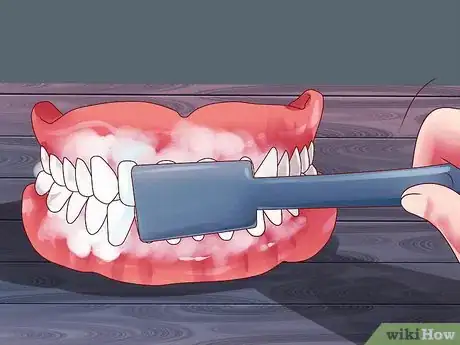
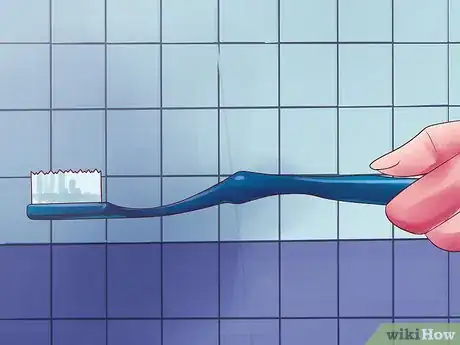
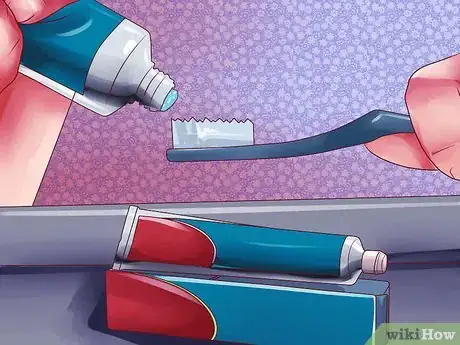
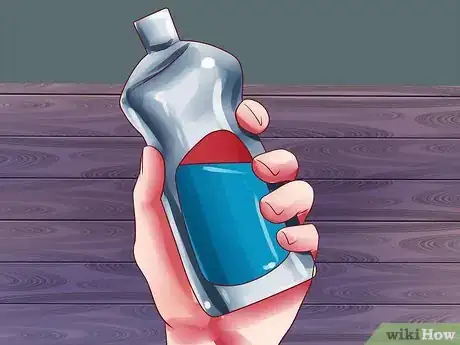
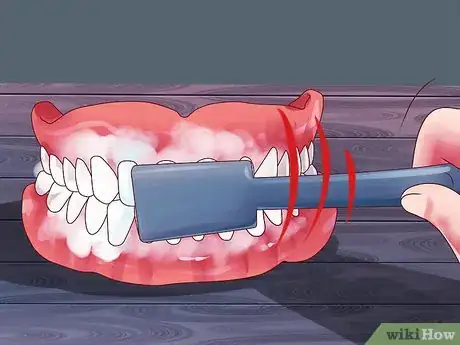
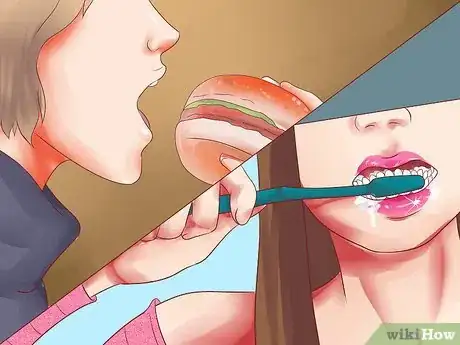
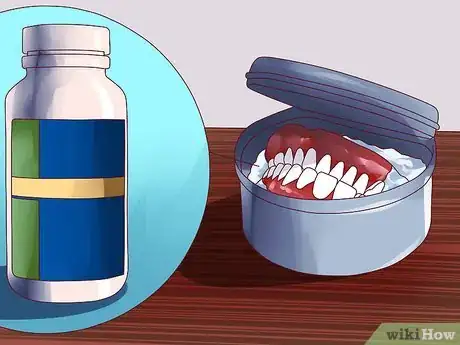
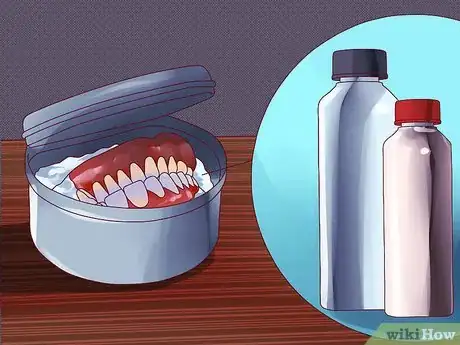
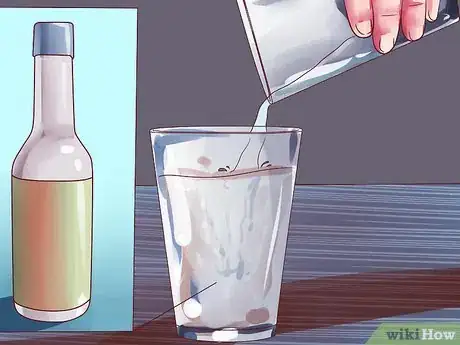
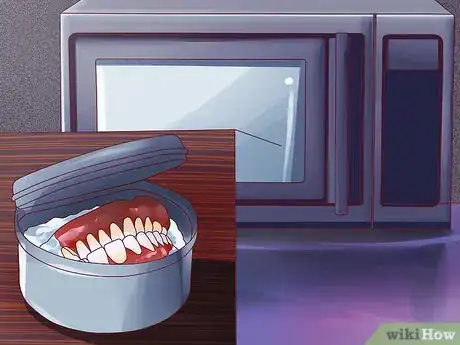
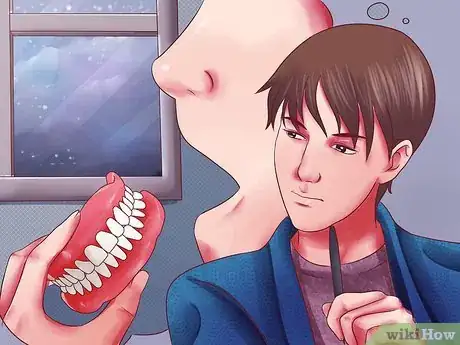
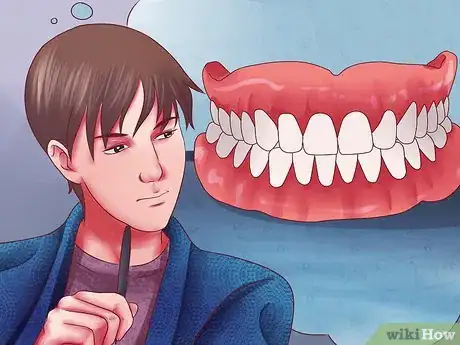
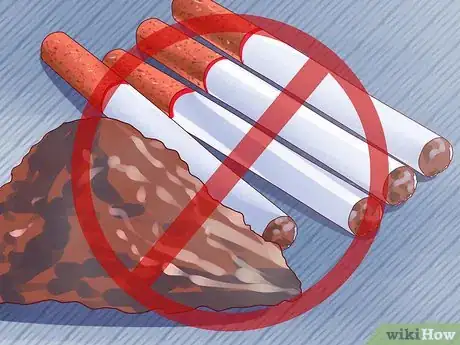
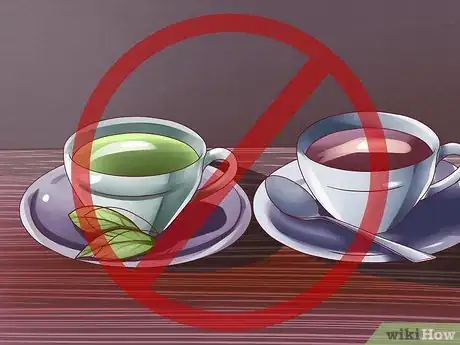
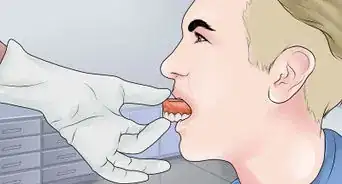
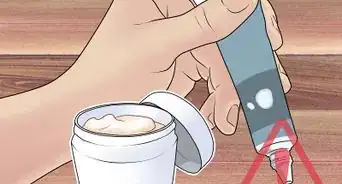

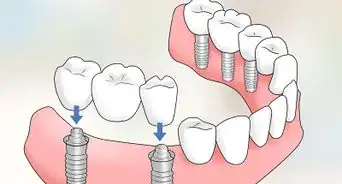

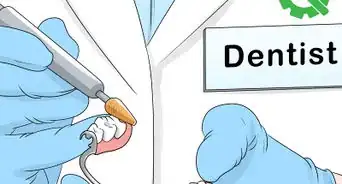
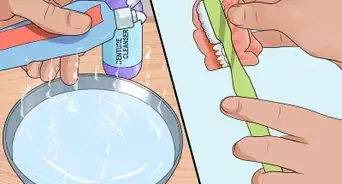
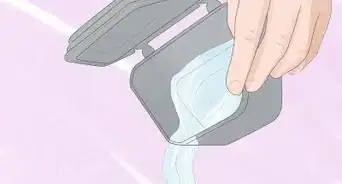
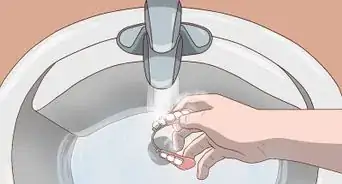
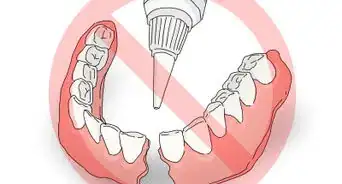









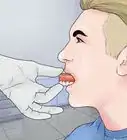
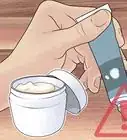

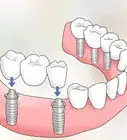



































Medical Disclaimer
The content of this article is not intended to be a substitute for professional medical advice, examination, diagnosis, or treatment. You should always contact your doctor or other qualified healthcare professional before starting, changing, or stopping any kind of health treatment.
Read More...